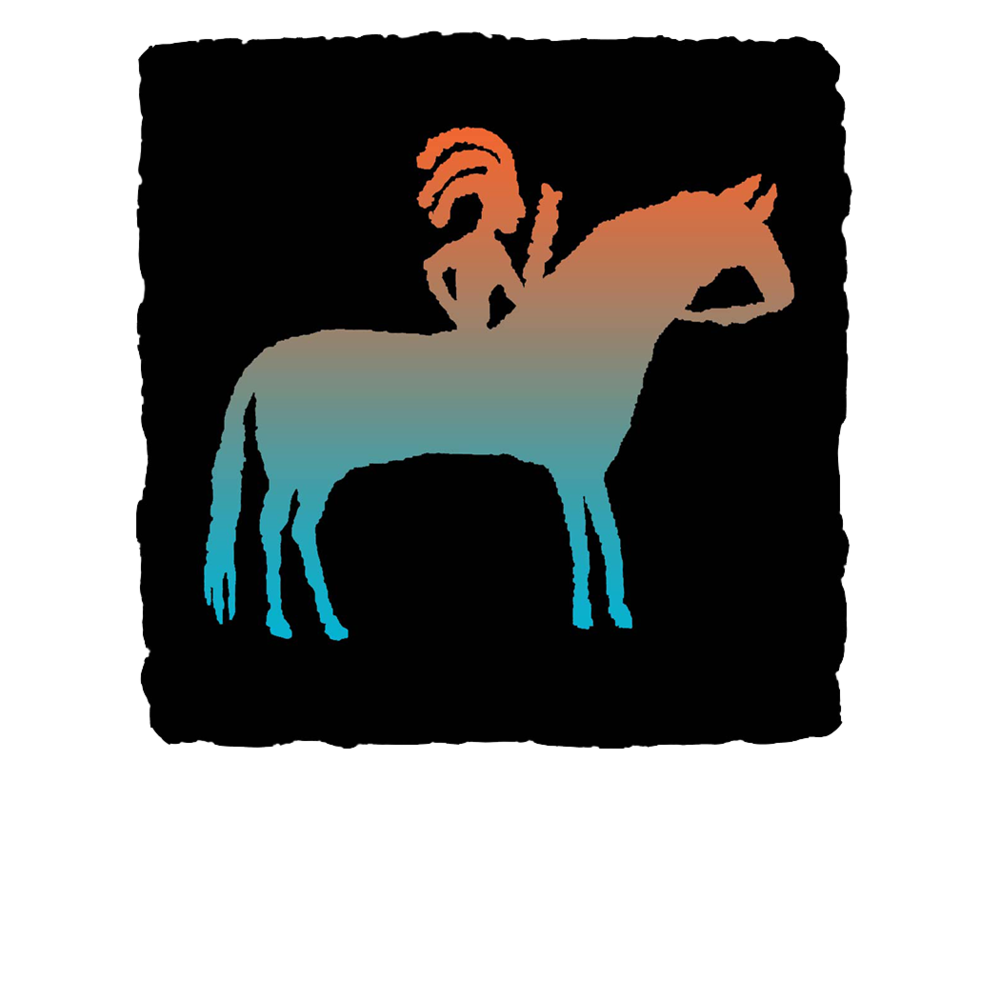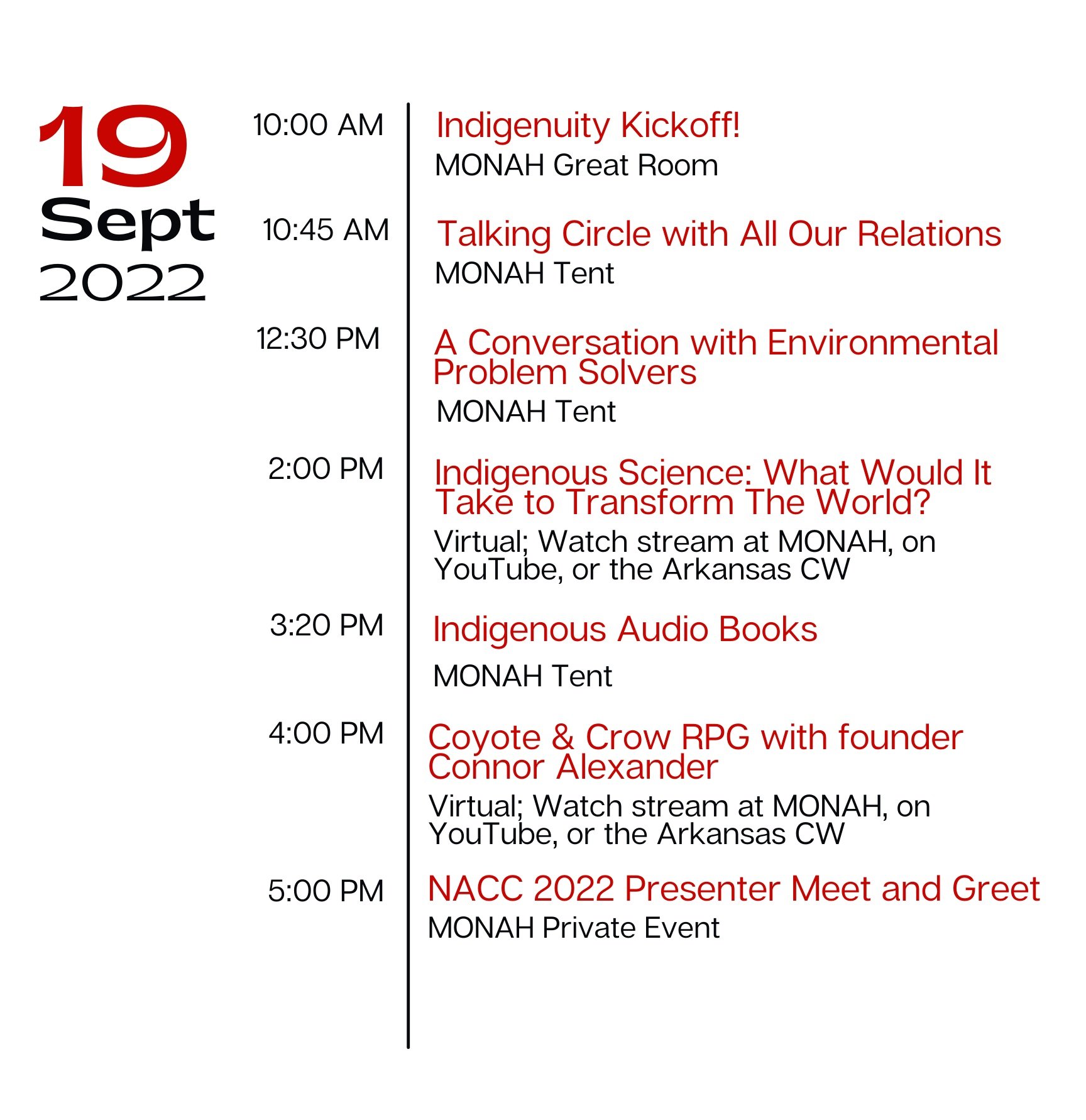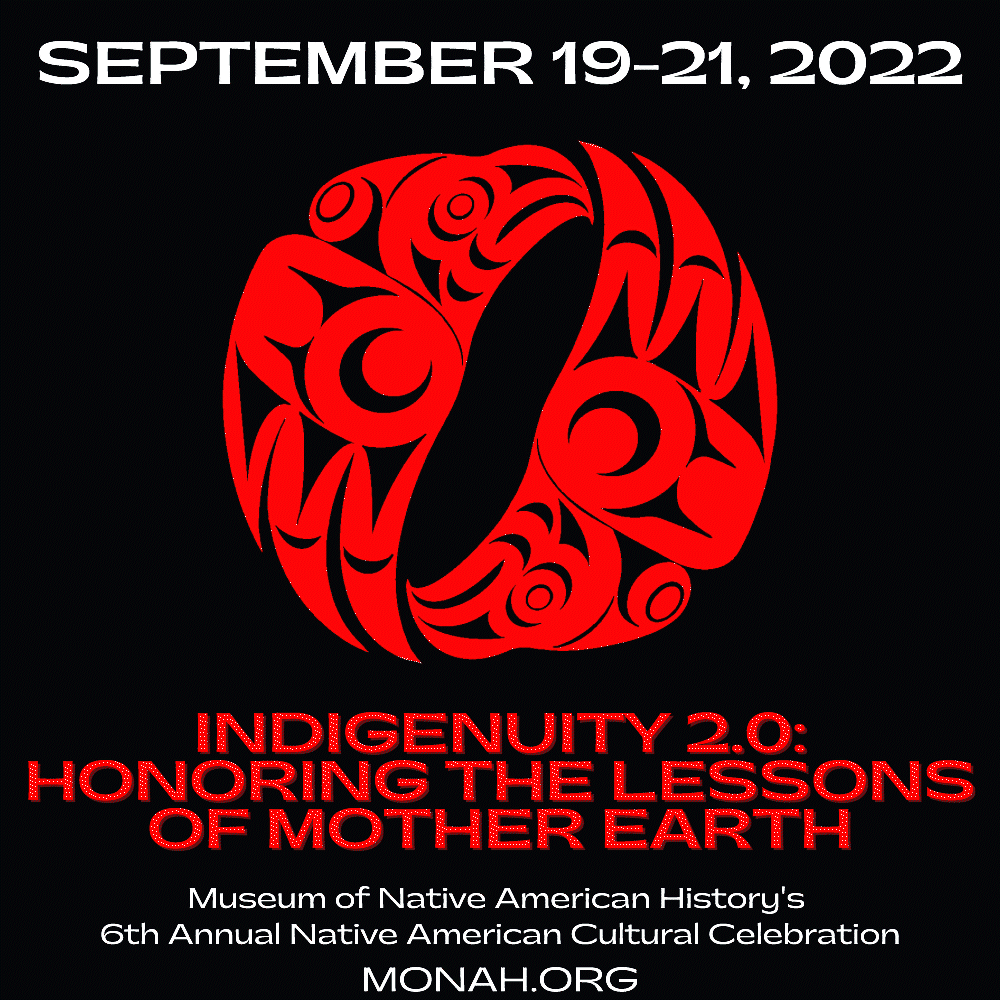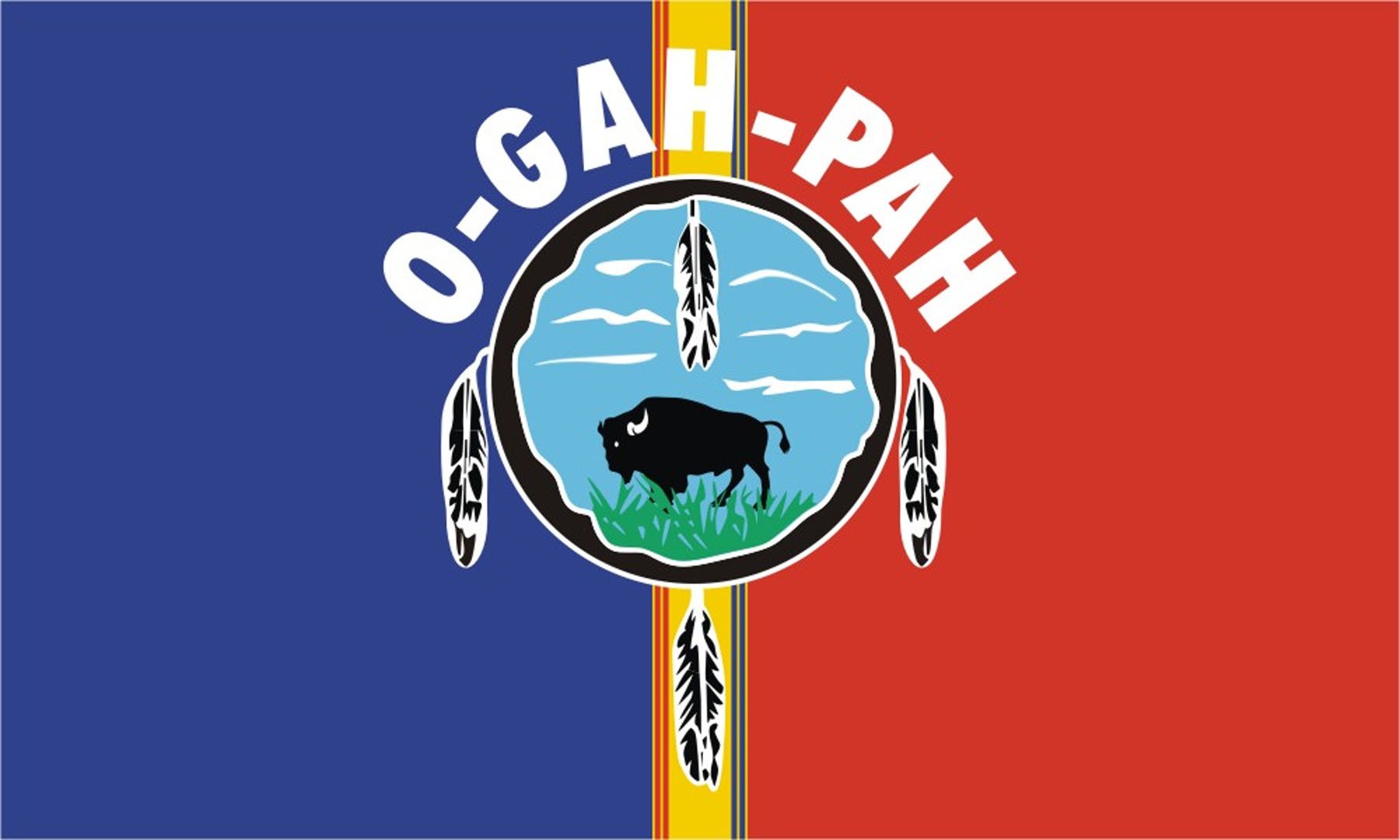6th Annual Native American Cultural CelebratioN 2022
Artwork by Jason LaClair (Lummi Nation.)
ABOUT NACC 2022
Indigenuity 2.0: Honoring the Lessons of Mother Earth
Monday, September 19th, through Wednesday, September 21st.
Join us as we celebrate the work of Indigenous leaders in STEAM, pop culture, food, and music.
This 3-Day event highlights leading Native voices of Indigenous environmental science
across the continent. We have curated an immersive experience of workshops, lectures, and
performances.
· Watch live-streamed via, Zoom, YouTube or Arkansas CW.
· Schools and classrooms are encouraged to participate.
· Email info@monah.us to get involved.
Presenters include Dr. Daniel Wildcat, Dr. Jessica Hernandez, Dr. Mae Hey, Dr. Michelle Montgomery, Patrick Freeland, Dr. Paulette Blanchard, Dr. Laura Harjo, Johnnie Jae, Dr. Mary Smith, Dr. Sarah Redfield, Dr. Megan Bang, Dr. Michelle Montgomery, Coyote and Crow, AIHEC Students, and a special performance by Grammy award-winning musician Larry Mitchell and Diné composer Michael Begay!
Want to hear more? Listen to MONAH on Visit Bentonville’s A New American Town Podcast!
BRING YOUR CLASSROOM!
Interested in having your students learn from top Indigenous scholars and creatives? Bring your classroom for FREE!
INDIGENUITY 2.0 CONTEST
Deadline to enter: September 15th!
Book your Stay at the Courtyard by Marriott!
Start Date: Monday, September 19, 2022 - End Date: Thursday, September 22, 2022
Last Day to Book: Wednesday, September 7, 2022
Hotel(s) offering your special group rate:
Courtyard Bentonville for 109 USD per night! Book your group rate for MONAH!
Things to do, see, and eat!
Author events and book signings!
Vendors
American Indian Center of Arkansas
AISES Arkansas Professional Chapter
Arkansas Foundation for Medical Care (AFMC) and the Arkansas Department of Health
Free COVID Vaccines and Boosters on September 19 from 10 am-5 pm! Learn more!
Rolling Taco Truck
Frosty Bites Shaved Ice
Masks will be provided at our front desk. We encourage you to take one and be considerate when nearby elderly and immunocompromised guests.
ABOUT PRESENTERS
Dr. Daniel Wildcat
Dr. Dan Wildcat (Yuchi member of the Muscogee Nation of Oklahoma) is a professor of Indigenous and American Indian Studies at Haskell Indian Nations University who serves as the director of the Haskell Environmental Research Studies Center. He is the author of Red Alert! Saving the Planet with Indigenous Knowledge (2009) which argues for the application of Native wisdom and nature-centered beliefs to combat the climate crisis.
Dr. Jessica Hernandez
Dr. Jessica Hernandez (Binnizá & Maya Ch’orti’) is a transnational Indigenous scholar, scientist, and community advocate based in the Pacific Northwest. She has an interdisciplinary academic background ranging from marine sciences to environmental physics. Her work is grounded in her Indigenous cultures and ways of knowing. She advocates for climate, energy, and environmental justice through her scientific and community work and strongly believes that Indigenous sciences can heal our Indigenous lands.
Dr. Michelle Montgomery
Michelle Montgomery (enrolled Haliwa Saponi/descendant Eastern Band Cherokee) is an Associate Professor of American Indian Studies and of Ethnic, Gender, and Labor Studies in the School of Interdisciplinary Arts and Sciences at the University of Washington Tacoma. Montgomery’s research focuses on Indigenizing and decolonizing the climate justice narrative; environmental ethics connected to Indigenous Peoples’ identities; and eco-critical race theory to eliminate racial and environmental oppression.
Dr. Laura Harjo
Dr. Laura Harjo is a Mvskoke scholar and an associate professor teaching Indigenous Planning, Community Development, and Indigenous Feminisms. She earned her Ph.D. at the University of Southern California in geography, while also tracking through the American Studies and Ethnicity doctoral program, and her scholarly inquiry is at the intersection of geography and critical ethnic studies with “community” as an analytic focus.
Dr. Paulette Blanchard
Dr. Paulette Blanchard (Absentee Shawnee/Kickapoo) has her PhD in Geography from Kansas University. Her current work addresses Indigenous science and science education, Indigenous led environmental movements and activism. Blanchard's incorporates Indigenous Feminist methodologies, ethics, protocols, and philosophies into her geographic framework. Her work includes social, climate, and reproductive justice for Indigenous Peoples and other intersectional and marginalized populations. Blanchard has interests in how and why science education influences Native students to stay or leave academic and science spaces, as well as how mentoring contributes to their success.
Patrick Freeland
Patrick Austin Freeland, Wind Clan of the Muscogee Nation of Oklahoma, serves as an educator and communicator, committed to action to promote the advancement of community and educational institutions through the integration of plural knowledge systems, employing excellence in design, and leading innovation through adaptation. Through interdisciplinary sciences, arts, and engineering, Patrick’s vocation seeks to integrate living systems and contemporary knowledges as a means of addressing significant environmental challenges through cultural revitalization and community engagement.
Dr. Mae Hey
Dr. Mae Hey stewards the Indigenous Friendship Garden at Virginia Tech. In the garden and other spaces, she works with Land to support Nature-centered learning, to close wellness inequities involving food, and to promote sustainability through kinentric ecology. She also serves Virginia Tech as an Assistant Professor, a Faculty Fellow for their Office of Inclusion and Diversity, a Faculty Affiliate for their Food Studies Program, and a Faculty Fellow for their Center for Food Systems and Community Transformation. She is a Sequoyah Fellow of the American Indian Science and Engineering Society and a member of the Native American Food Sovereignty Alliance’s culinary mentorship program.
Johnnie Jae
Johnnie Jae (Otoe-Missouria, Choctaw) is a journalist, speaker, community advocate and builder whose work has been featured by USA Today, BBC, and Indian Country Today, to name a few. She is the founder of A Tribe Called Geek, a media platform for Indigenous Geek and STEM culture, and #Indigenerds4Hope, a suicide prevention initiative designed for Native youth.
Coyote & Crow, RPG
Coyote & Crow the roleplaying game, is a Nebula Award nominated sci-fi and fantasy tabletop role playing game set in a First Nations alternate future where colonization never happened. This game was created and lead by an all Native team. In March 2021, Coyote & Crow became one of the most successful role playing games to ever fund on Kickstarter, raising more than $1 million dollars.
Connor Alexander
Connor Alexander is a proud citizen of the Cherokee Nation of Oklahoma. He is the creator of Coyote & Crow RPG. Born in California and living in Seattle, his heart remains in New Orleans. A nerd since he was old enough to watch classic Star Trek re-runs, and a punk since he was able to buy his first pair of Doc Marten’s, Connor spent years wandering around the country through a myriad of careers, finally settling into a degree and career in film and television. In 2014, he took his first steps into working in the hobby game industry and hasn’t looked back.
Will Thompson
Will Thompson (Cherokee) is an Indigenous writer for Coyote & Crow among other projects. He will be representing the game in-person at MONAH for the Cultural Celebration
Mary Smith
Mary Smith (Cherokee) is the founder and president of the Caroline and Ora Smith Foundation, a organization dedicated to supporting Native American girls in science, technology, engineering, and mathematics (STEM). She is also President-Elect Nominee of the American Bar Association, and the first Native American woman to hold this title.
Sarah Redfield
Sarah Redfield is Professor Emerita at the University of New Hampshire School of Law and an Affiliate Professor at the University of New Hampshire College of Education and Women’s Studies Program. She is a member of the Maine Bar. Her research and scholarship are focused on diversity and inclusion in the legal profession and along the education pipeline. Her current work continues her long-standing interest in Diversity, Equity, & Inclusion and concentrates on implicit bias and on strategies to interrupt that bias and reduce the negative consequences of its manifestations in legal, medical, education, and workplace environments.
Dr. Megan Bang
Dr. Megan Bang (Ojibwe and Italian descent) is a Professor of the Learning Sciences and Psychology at Northwestern University and is currently serving as the Senior Vice President at the Spencer Foundation. Dr. Bang studies dynamics of culture, learning, and development broadly with a specific focus on the complexities of navigating multiple meaning systems in creating and implementing more effective and just learning environments in science, technology, engineering, arts, and mathematics education.
Larry Mitchell
Larry Mitchell is a Grammy award-winning producer, engineer and performer who has toured the world playing guitar with well-known artists including Tracy Chapman, Billy Squier, Ric Ocasek and Miguel Bosé. In his original compositions, Larry skillfully weaves guitar textures that showcase his virtuosity as a solo artist and ensemble player.
Michael Begay
A Diné performer/composer of Chamber Music, Experimental Sound, Native American Flute, and Metal music. Not only is Michael Begay an accomplished guitarist and bassist, but also plays piano, and various instruments both Native American and orchestral. A graduate of the Grand Canyon Music Festival’s Native American Composer’s Apprentice Project (NACAP); Mr. Begay has studied under both Native and nonnative American Composers: Brent Michael Davids (Mohican), David Mallamud, Jerod Impichchaachaaha’ Tate (Chickasaw), Libby Larson, and Raven Chacon (Diné).
Nico Albert
Nico Albert (Cherokee Nation) is the Founder/Executive Chef of Burning Cedar Indigenous Foods, a catering & consulting company based in Tulsa, Oklahoma. She spends her time cooking, eating, studying, writing, and speaking about traditional and modern Native cuisine.
Mark Ford
Mark Ford (Chiricahua Apache and Tewa/Tiwa (Pueblo)) is the Director of Native/Tribal Partnerships at Feeding America. Prior to joining Feeding America, Ford served as the Director of Community Partnerships and Tribal Relations at Partnership With Native Americans (PWNA), a nonprofit committed to championing a brighter future for Native Americans living on remote, isolated, and impoverished reservations. Ford initiated PWNA’s “Long-Term Solutions” sustainable programs for tribal communities and cultivated partner relationships with corporations, foundations, non-profit organizations, tribes, and philanthropists to support the organization’s work. He was also previously appointed the Executive Director of the Governor’s Office of Indian Affairs in Louisiana, assisting the Louisiana tribes after Hurricanes Gustav and Ike in their recovery efforts. He served as a Roman Catholic priest for 16 years.
Erin Parker
Erin Parker is the Executive Director of the Indigenous Food and Agriculture Initiative (IFAI) at the University of Arkansas School of Law. Erin has worked in Indian Country for all of her career as a food and agricultural lawyer, with the past nine years at IFAI. She has worked closely with the Board of the National Association of Food Distribution Programs on Indian Reservations and in her prior role as IFAI’s Research Director helped to institute a Tribal Leaders Consultation Working Group at USDA on FDPIR. Previously, she worked as a Staff Attorney and Research Coordinator for the Cobell Commission, a national working group convened by the Secretary of the Interior to repair the federal government’s Indian land trust management system. In addition to her leadership at IFAI, she teaches courses in the University of Arkansas’s Masters in Agricultural & Food Law (LL.M.) Program, including federal nutrition law & policy and Indigenous food & agricultural law.
Featured Quapaw Film Night! Tuesday, September 20, 2022
Regeneration of Land and Culture
A documentary Directed and Edited by Brooke Bierhaus in collaboration with Quapaw Nation.
How the West Wasn’t Won (collection of comedy scenes from Running on Indian Time)
Produced by JR Mathews featuring Wes Studi
Quapaw Veteran short film
Subscribe to our Newsletter and be the first to know as more details are released.










